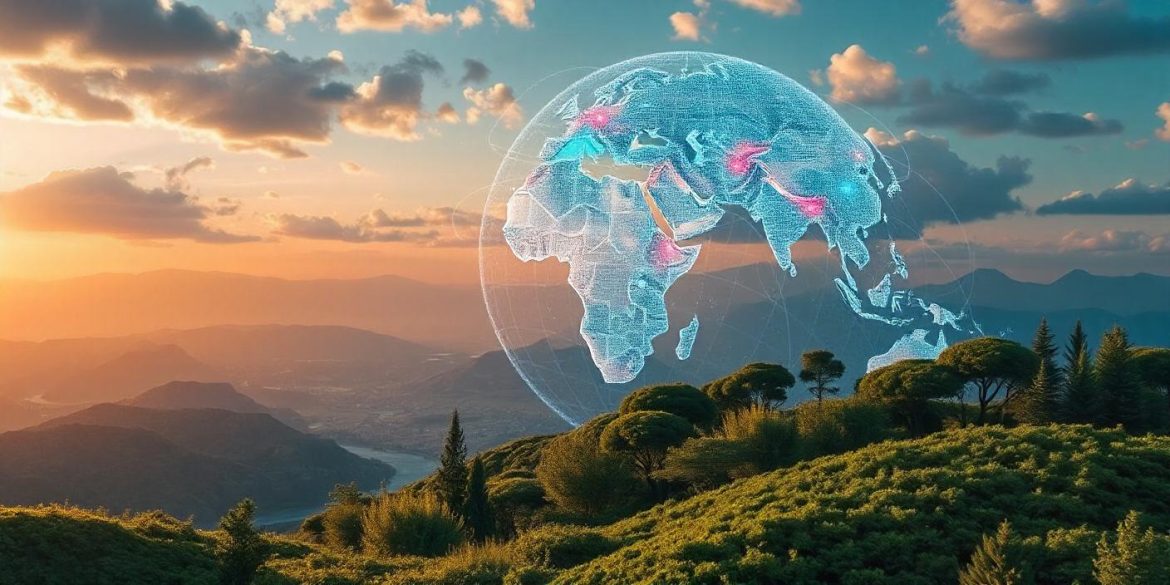Artificial Intelligence (AI) is rapidly transforming the global landscape, and Africa is no exception. The continent, with its diverse challenges and opportunities, stands to benefit significantly from the adoption and integration of AI technologies. Here’s a comprehensive overview of the power of AI in Africa:
1. Economic Growth and Innovation
- Startups and Entrepreneurship: AI is fostering a wave of innovation across Africa, with a growing number of startups leveraging AI to solve local problems. Companies are using AI to optimize supply chains, improve customer service, and create new products tailored to the African market.
- Agriculture: AI-powered tools are revolutionizing agriculture in Africa by providing farmers with real-time data on weather patterns, soil health, and crop performance. This technology helps increase yields, reduce waste, and combat the effects of climate change.
You will never be happy if you continue to search for what happiness consists of. You will never live if you are looking for the meaning of life.
2. Healthcare Transformation
- Diagnostics and Treatment: AI is improving access to quality healthcare by enabling early diagnosis and treatment of diseases. For example, AI algorithms can analyze medical images to detect conditions like tuberculosis, malaria, and even cancer at an early stage, which is crucial in regions with limited access to healthcare professionals.
- Telemedicine: AI-driven telemedicine platforms are helping bridge the healthcare gap in remote areas. By connecting patients with doctors via mobile devices, AI ensures that even those in the most underserved regions receive medical advice and care.
3. Education and Skill Development
- Personalized Learning: AI is enhancing education by providing personalized learning experiences. AI-driven platforms can tailor educational content to individual students’ needs, helping them learn at their own pace and improving overall educational outcomes.
- Vocational Training: AI is also being used to provide vocational training in fields like technology, agriculture, and healthcare, equipping the African workforce with the skills needed for the jobs of the future.
4. Financial Inclusion
- Mobile Banking and Fintech: AI is playing a crucial role in expanding financial services to unbanked populations across Africa. Through AI-powered mobile banking apps, millions of people can access banking services, make payments, and receive loans without needing a traditional bank account.
- Credit Scoring: AI is also helping to create more accurate and inclusive credit scoring systems. By analyzing alternative data sources, such as mobile phone usage and social media activity, AI can assess creditworthiness for individuals who lack formal credit histories.
5. Governance and Public Services
- E-Government: AI is being integrated into government systems to improve public services. For instance, AI can be used to automate administrative tasks, detect fraud, and enhance the efficiency of public service delivery.
- Data-Driven Policy Making: AI enables governments to analyze large datasets to inform policy decisions. By understanding trends and predicting outcomes, AI helps in creating more effective and targeted public policies.
6. Addressing Social Challenges
- Disaster Response: AI is being used to predict and respond to natural disasters in Africa, such as floods and droughts. AI models can analyze environmental data to forecast disasters, allowing for better preparedness and response.
- Human Rights Monitoring: AI tools are also being used to monitor human rights abuses, track conflict zones, and support peacebuilding efforts across the continent.
7. Challenges and Ethical Considerations
- Bias and Fairness: One of the key challenges of AI is ensuring that algorithms are free from bias and that they do not reinforce existing inequalities. In Africa, this is particularly important as AI systems must be designed to reflect the diverse cultural and social contexts of the continent.
- Data Privacy: As AI relies heavily on data, there are concerns about data privacy and security. African governments and organizations need to establish robust frameworks to protect individuals’ data rights.
- Infrastructure and Accessibility: The successful deployment of AI in Africa depends on the availability of reliable infrastructure, such as electricity and internet access. Efforts must be made to bridge the digital divide to ensure that the benefits of AI reach all segments of society.
8. Future Prospects
- AI for Sustainable Development: AI has the potential to accelerate progress towards the United Nations’ Sustainable Development Goals (SDGs) in Africa by addressing issues such as poverty, hunger, and education.
- Pan-African Collaboration: Collaborative efforts among African countries, such as the African Union’s focus on digital transformation, can help harness AI’s full potential across the continent. Sharing knowledge, resources, and best practices will be key to AI’s success in Africa.
Conclusion
The power of AI in Africa is vast and multifaceted. From driving economic growth and improving healthcare to enhancing education and financial inclusion, AI is poised to play a transformative role in the continent’s future. However, to fully realize the benefits of AI, it is essential to address the challenges of bias, data privacy, and infrastructure. With the right strategies and collaborations, AI can be a powerful tool for driving sustainable development and improving the quality of life across Africa.

